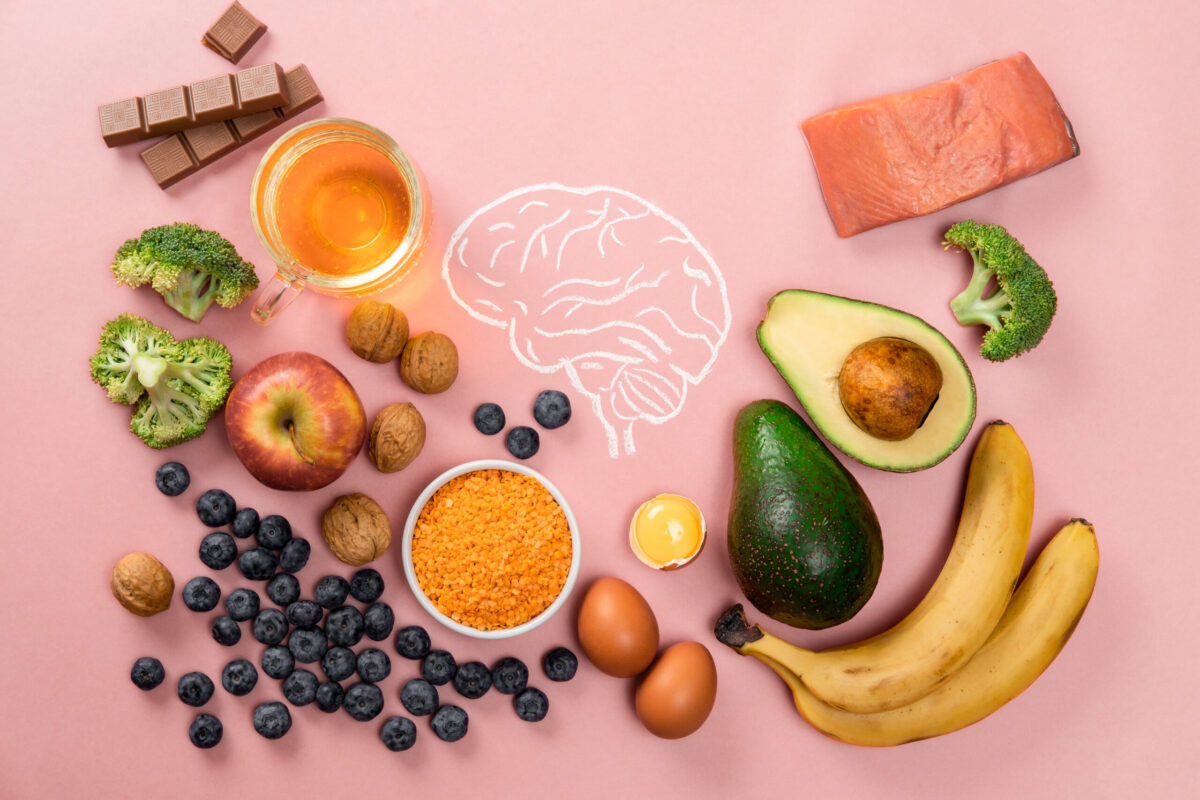Do you ever wonder if what you eat may be affecting your state of mind?
While there isn’t scientific research showing a definitive link between specific foods and depression, there are some associations between dietary factors and depression. So, you may want to consider the food-mood connection when you’re shopping for groceries or ordering take-out.
“The foods we eat influence how our brains function,” says Leslie Cornett, a registered dietitian-nutritionist at BlueCross BlueShield of Tennessee. “Good nutrition can help improve and maintain brain health.”
Here’s what you need to know about making the food-mood connection work for you.
Watch out for unhealthy foods
Leslie Cornett: We’re still learning about how our diets affect our mood. Over the years, scientists have found some evidence that consuming large amounts of meat or sugar-sweetened beverages may be linked with higher rates of depression. And while scientists continue to explore this food-mood connection, it may be worth avoiding foods that could be mood-draining. I would include the following in that category:
- Refined flour
- Processed sugar
- Processed foods
- Fast food
- Sugar-sweetened beverages
Diets that are high in refined sugar have been shown to be harmful to your brain health, as well as your overall health.
It’s normal to crave your favorite comfort foods in times of stress. It’s okay to indulge from time to time. You just don’t want to get into a habit of eating high-calorie, low-nutrient foods.
Prioritize healthy eating habits
Leslie Cornett: Start by considering your approach to eating. Are you getting the nutrition that your body and brain need? You may want to pay closer attention to the nutrients in the foods you’re eating. According to research published in the World Journal of Psychiatry, there are 12 nutrients that are especially important for your mood and your mental health:
- Folate
- Iron
- Long chain omega-3 fatty acids (EPA, DHA)
- Magnesium
- Potassium
- Selenium
- Thiamine
- Vitamin A
- Vitamin B6
- Vitamin B12
- Vitamin C
- Zinc
It may be easier to think about trying to incorporate more healthy foods into your diet. One tip: focus on eating more foods such as grilled and baked lean meat, fish, fresh fruits and vegetables, whole grains, low-fat dairy, and healthy fats—or eating them more often.
If you need a little more specific guidance, try following an anti-inflammatory eating plan or the Mediterranean diet, both of which are good ways of eating for brain health. In fact, a 2020 review of research suggests that eating a Mediterranean diet seems to help improve depressive symptoms.
As you begin to look at how you can improve your diet, consider adding many of these items to your shopping list:
- Olive or avocado oil
- Avocado
- Nuts and seeds
- Fresh fruits and vegetables
- Chicken
- Omega-3 rich fish, which includes salmon, tuna, cod, herring trout, and mackerel
- Eggs
- Beans, peas and lentils
- Low-fat dairy products such as yogurt and milk
- Whole grains, including whole-grain bread and pasta, quinoa, oats, brown rice, and bulghur wheat
- Fresh herbs and spices, such as cinnamon, ginger, turmeric, rosemary, thyme and sage.
Give it some time
Leslie Cornett: It’s not easy to revamp the way you eat. So, if you’re trying to eat healthier and avoid foods that may be pulling your mood down, try to be patient with yourself. I would advise that you give your new eating plan at least 30 days—maybe even 60 days—to see if you notice an improvement in your mental outlook. And, remember that transitioning to a whole food diet can benefit both your mental and physical health.
More from Leslie Cornett on WellTuned
Get more information about specific health terms, topics and conditions to better manage your health on bcbst.com. BlueCross BlueShield of Tennessee members can access wellness-related discounts on fitness products, gym memberships, healthy eating and more through Blue365®. BCBST members can also find tools and resources to help improve health and well-being by logging into BlueAccess and going to the Managing Your Health tab.





